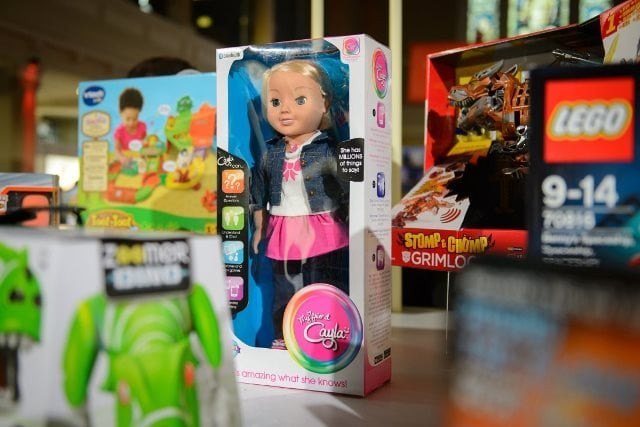Germany bans internet-connected 'spy' doll Cayla
The agency warned that anything a child says could be recorded and transmitted without parent's knowledge

The talking doll "My Friend Cayla" is displayed at the DreamToys toy fair in central London, on November 5, 2014. The event sees manufacturers of the predicted Christmas bestsellers showcase their products in the run up to the festive season. PHOTO: AFP
Parents were urged to disable the interactive toy by the Federal Network Agency which enforces bans on surveillance devices.
"Items that conceal cameras or microphones and that are capable of transmitting a signal, and therefore can transmit data without detection, compromise people's privacy," said its head, Jochen Homann.
"This applies in particular to children's toys. The Cayla doll has been banned in Germany. This is also to protect the most vulnerable in our society."
Mobile app helps China recover hundreds of missing children
The doll works by sending a child's audio question wirelessly to an app on a digital device, which translates it into text and searches the internet for an answer, then sends back a response that is voiced by the doll.
The agency warned that anything a child says, or other people's conversations, could be recorded and transmitted without parents' knowledge.
"A company could also use the toy to advertise directly to the child or the parents," it said.
"Moreover, if the manufacturer has not adequately protected the wireless connection, the toy can be used by anyone in the vicinity to listen in on conversations undetected."
Google adds voice-activated shopping, taking on Amazon
The agency added that it would "inspect other interactive toys and, if necessary, will take further action".
The European Consumer Organisation said it welcomed the decision but criticised the fact consumers would struggle to get compensation.
Its head Monique Goyens said that "if connected toys, such as this speaking doll, can be hacked to spy on or talk to children, they must be banned."
She added that "EU product laws need to catch up with digital developments to deal with threats such as hacking, data fraud or spying".



















COMMENTS
Comments are moderated and generally will be posted if they are on-topic and not abusive.
For more information, please see our Comments FAQ